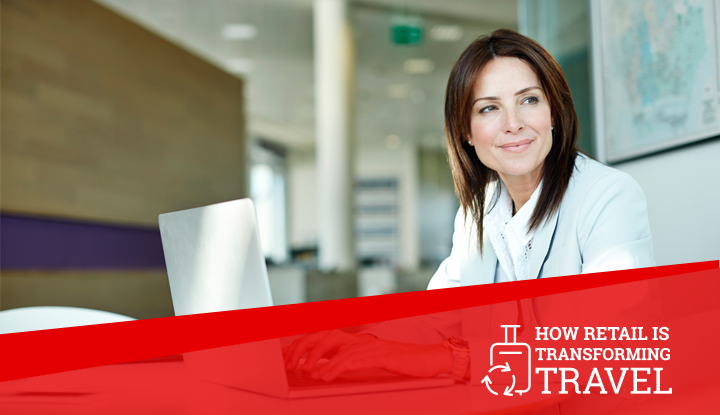There
can be too much of a good thing.
The revolution in travel retail has caused disruption across the industry and, more often than not, it is being led by the empowered traveler. An overabundance of travel information and booking options available online was initially viewed as a threat to traditional travel consultants, but it ended up creating a lot of noise — and that noise has proven to be a boon instead.
It turns out that even the tech-savvy and educated traveler wants help sorting through the options and has turned to travel consultants to take the pain out of planning a trip and create better travel experiences. According to the
Travel Retail Trends article recently published on Travel Weekly, while travelers want to know about all the options that are out there, they also want curated content that is personal and meaningful to them.
According to the 2016 Global GBTA BTI Outlook report, global business travel spend was US $1.2 trillion in 2014. The study also shows that business travel had an increase of 6.5% in global spend in 2015 and is gradually accelerating. This represents a great opportunity for travel consultants and agencies to shine.
By capitalizing on available technology to find incremental savings and offer the travel options that will meet the unique needs of travelers and travel managers, agencies can prove their value to ever-more-frugal clients.
Relying on technology to help sort through the noise
The explosion of options prompts travelers to look to travel consultants for advice and the best possible deals, while travel managers continue to rely on their TMCs to help them manage their corporate travel programs and enforce travel policies.
Making sure that current and new travel consultants master available systems should be a top priority for any agency. The right technology often makes all the difference when it comes to providing measurable value to a corporate client. Travel consultants need to understand all the complexities around corporate travel to deliver consistent savings and efficiency.
Many incoming travel consultants have experience in retail selling, but may not know their way around a travel Point of Sale (POS) system. It’s crucial to get them up to speed quickly to become more efficient, minimize errors, increase revenues, and to minimize high turnover rate in agency staff.
An intuitive technology platform designed for both the new and seasoned travel consultants will help get new hires up and running quickly while adding workflow efficiencies and process improvements for the more experienced agent. Incorporating value-add functionalities to help personalize the experience for the end traveler helps the agency differentiate services and remain competitive. The goal, ultimately, is for consultants to be self-sufficient while providing personalized service that helps them improve customer satisfaction and build relationships with their customers.
Recent studies conducted by the Sabre Global Consulting team indicate that the average corporate travel consultant processes approximately 11 transactions per day, including air tickets, hotel, car, and other amenities. The consulting studies also show that by standardizing and automating quality control functions and routine tasks such as delivering trip proposals, agencies gain significant efficiencies and deliver better services.
With the increasing demand for personalized offers and services, it is essential to use tools that integrate customers’ historic data and preferences into the shopping and booking process to help deliver a more personalized experience.
Making sense of noise
Another area ripe for opportunity for agencies is analytics — and here the right technology is crucial. Many businesses find it a significant challenge to collect and interpret data as efficiently as they need to. But now more than ever, any agency that has a strong focus on data is probably going to win in this space because data doesn’t lie.
There’s seemingly no limit to what an agency can learn from comprehensive data-gathering. For example, an analysis of shopper behavior and fare trends can help consultants predict the best days to purchase plane tickets, or whether to hold off on a purchase as the data may show that prices could drop the following week.
Data can also be used to measure and improve efficiency in the booking process. For instance, the frequency with which certain commands are entered into the system, the number of clickthroughs on a link, and the average time required for a booking can help identify where agencies can find incremental savings for their travelers, notify suppliers of how their products are converting, and highlight inefficiencies in processes and procedures.
The travel industry is extremely dynamic and each change is an opportunity for travel agencies to reinforce the value they bring to their clients, whether large or small. By fully taking advantage of the changing travel environment, and the systems and tools to help consultants cater to the empowered, tech-savvy traveler, agencies will learn how to educate employees on how to maximize technology tools, and use data to drive decision-making. With a savvy approach to the wired world, there’s no reason why agencies can’t continue to thrive.
Chris Henz manages the Point of Sale marketing team at Sabre’s Travel Network division and has been a product marketing professional in the technology industry for over 20 years.
To read more about the benefits of using technology to work smarter please read: Good (UX) design is great (enterprise) business.